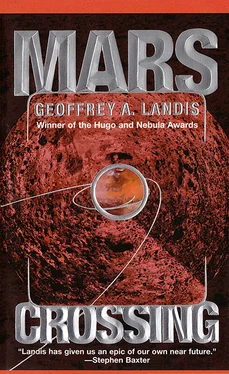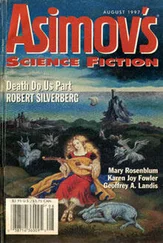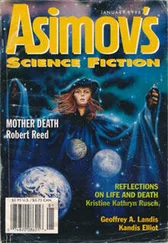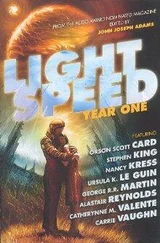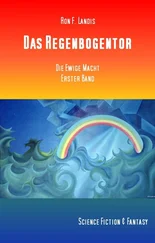The Brazilian ship had not been designed to carry back even one kilogram of rocks. João had explained it all to her one evening, slowly and patiently. With any extra payload it would fail to get into orbit. The Brazilians had sent an expedition of two; they could return an expedition of two. Two astronauts, and not a kilogram more, was what their return ship was capable of launching home.
She had remained silent. If Ryan Martin did not mention to the crew that his plan could, at best, only save two of them, why should she?
The fact that he had left it out frightened her as much as anything else. It showed that he knew that their situation was desperate, and that in his opinion sacrificing some members of the crew would be an improvement on their current situation. He was afraid that the crew would panic if they knew. At that moment, she knew that they must be very close to death.
Could it possibly be that he didn’t know? The specifications of the Jesus do Sul were not public knowledge. Could he possibly believe that they could cram five people into a ship that had been designed for two? It seemed unlikely.
Estrela turned her head to take a sip from the nipple of the drinking bottle. The suits had not been designed for long-term use; until she took her helmet off, the electrolyte-replacement drink would be the only nourishment she’d get. She reminded herself not to suck too much; it would have to last. But the thought only made her thirstier.
The alternative was slightly more sinister. Suppose that Ryan Martin did know that only two of them could return to Earth. Could he have a reason to keep this fact secret?
Clearly, he intended to be one of those persons.
A trek to the north pole would be an ambitious traverse even for a fully functional, well-planned mission. It would take the skills of the full team of five to make it. Once they got to the north pole, though, three of the five must somehow be persuaded to remain on Mars. The easiest way to do that would be to make sure that three of them were already dead.
She knew what it was like to have to kill for her life. When it comes to a matter of life or death, anybody would learn to lie and to kill.
Any way she looked at it, Ryan Martin looked to her like a killer.
Whenever anybody would ask her where she came from, Estrela Carolina Conselheiro would tell them she was from Ipanema. “I’m the girl from Ipanema,” she said, tossing her head and smiling. “Just like in the song.”
It was a lie. She was from Rio, yes, but although the mother she could barely remember had given birth to her no more than ten kilometers from the chic restaurants and boutiques of the Visconde de Piraja, Ipanema might as well have been farther away than the moon.
Most of her history was a lie. She had not grown up sheltered, staying out of public schools with a private tutor. Her parents, she said, had been an artist and a successful businesswoman who had been killed in the earthquake and fire of 2009, the same fire that destroyed her birth records. It was quite plausible. Earthquakes are so uncommon in Brazil that the 2009 earthquake, catching Rio completely unprepared, had devastated a large portion of the city, including many records. It was also completely untrue.
She had grown up on the streets. She had her virginity taken away by age seven, and seen her first man killed with a knife at age nine. All she knew about the beaches of Ipanema was that, if you were caught shoplifting there, after they shot you they would take your body up to Madureira to dump it, so as not to frighten the tourists away.
Her brother Gilberto had taught her how to read. He had been all the family she ever had. “You have to learn to read, Estrela,” he had told her. “Then, one day, when you’ve become rich, we’ll kill them all.” His smile gleamed in the dim light. He had been completely serious.
But there was no way they would ever become rich.
They survived by stealing, begging, selling drugs for the gangs when they could, and going through garbage when there was nothing to steal and nothing to beg and no European tourists to sell drugs to. When there was no garbage, they ate nothing. Gilberto would offer to sell her body when he thought he could find a taker who would pay for the thrill of sex with a girl not yet even close to puberty, but most of the customers he offered her to would only curl up their lips in disdain. There was little market for a whore that was starved and dirty and probably diseased.
That life ended when she was eleven.
It had been a warm night, and a full moon shone down on the alleys. She slept huddled up against Gilberto, for the little comfort it gave her rather than for warmth.
Gilberto was flatlined. He had stolen a quarter of a liter of gasoline and had spent the evening with his head in a bag, inhaling the fumes. Once he passed it over to her, and she had tried it as well, sticking her head into the bag and taking a big inhalation from the gas-soaked rag, but she had gone reeling back, her head singing from the fumes, her nose suddenly feeling as if cockroaches had crawled inside her nostrils and were clawing around somewhere above her mouth. Gilberto watched her and laughed, his eyes red and swollen from the fumes.
Now he was asleep, fallen over on his back with his mouth wide open, not even hidden away in a doorway. His instincts, his secret antennae that sensed trouble before it showed itself, his secret sense that had kept them both alive, had failed him, blotted away by gasoline fumes.
The policemen were not quiet. They came down the alley with flashlights so bright that they hurt her eyes, swinging their rifles like clubs. She tugged at Gilberto’s arm frantically, and at last he moved. He looked up, his eyes out of focus and leaking a gummy fluid, said “Huh,” and then threw up a thin stream of watery yellow.
It would not have mattered even if they had run. The police had blockaded both ends of the alley. She couldn’t see the faces of the policemen; they were wearing riot helmets with darkened bulletproof visors lowered down over their eyes. One grabbed her arm and pulled her to her feet, than shoved her down the alley. She staggered and ran, and another policeman hit her with a rifle-butt and knocked her down again. Guided by blows from the butts of guns, she and Gilberto were herded down the alley until they were crowded together with a dozen other street urchins, ranging in age from four to almost fifteen.
She knew almost all of them, the children who lived on the streets. When they had extra, they would share it with her, and she with them. The had no loyalty and no love, but they were as close a thing to friends as she had ever known.
No one talked to her, no one ventured a reason for the roundup, nor did she expect to hear one. Perhaps a policeman had been killed up in one of the favelas, and they were exacting revenge. Perhaps a merchant had complained of shoplifting, or of shit bespoiling the street, and the police had decided to clean out the human vermin. Maybe there was no reason. Street children in Rio did not expect to live very long.
She was kicked, and then picked up and tossed against the brick wall. She looked up, stunned and bleeding. She knew this place. It was an empty lot where a building had been torn down two years earlier. They had slept there for several weeks, until the people who owned it has seen fit to send guards around to kick them out. Was that it? Were they still mad that they had had squatters? Where was Gilberto? She couldn’t see him.
Somewhere in the darkness, one of the policemen shoved a cassette of the Rolling Stones into a portable stereo tape player and turned up the volume. It was cheap stereo, and the distortion turned the lyrics of “Under My Thumb” into an angry, shouted manifesto.
Читать дальше
